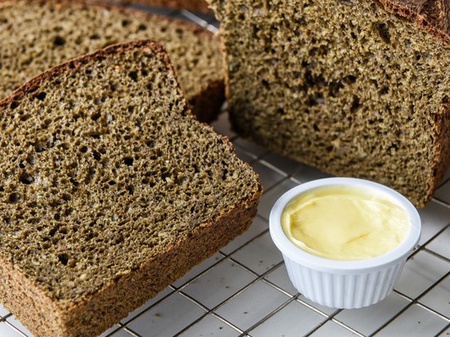A new study has found adding hempseed to your diet can help modulate gut hormone levels in the blood and promote a feeling of fullness after eating.
The first of its kind study conducted by researchers at the University of Aberdeen’s Rowett Institute has been published in the European Journal of Nutrition, with the results prompting a new collaboration with one of the UK’s largest food producers to explore the crop’s nutritional and ecological properties further.
Hemp, which used to be widely grown in Scotland, is a rich source of protein, dietary fibre, healthy fats and micronutrient minerals such as magnesium, phosphorus, potassium, calcium and zinc.
The study, funded through a Scottish Government Rural and Environment Science and Analytical Services (RESAS) grant, looked at the impact on satiety and gut hormone levels after eating hemp and other high protein crops products in comparison to meat.
Hemp and buckwheat flours, when baked into bread, were found to be valuable sources of dietary amino acids with participants recording higher feelings of fullness after eating, a contributing factor to helping us regulate our food intake.
This research has prompted further projects on hemp, including one which is co-funded by the Good Hemp UK - a partnership initiated through an MRC Proximity to Discovery Industry Engagement Fund (P2D) grant - and CONACYT, the Mexican Council for Science & Technology.
The new study will seek to further explore our understanding of the nutritional attributes of hempseed protein and fibre and their role in diversify our dietary choices.
The study will also help meet Scotland’s National Performance Framework and sustainable development goals by supporting sustainable food development and agricultural diversity, while examining the potential for reducing and revalorising waste in the hempseed food chain as part of the circular economy.
Dr Madalina Neacsu, Research Fellow at the Rowett Institute, said: “Hemp is ideally placed to provide dietary protein diversification, as well as to boost daily fibre recommendations.
“It has wide and versatile uses and is a symbol of the new agricultural revolution. With this new collaboration we are seeking to understand how re-establishing its growth in Scotland could offer a more sustainable alternative to importing protein-rich crops like soya bean.”
David Shaw from Good Hemp said: “We have always known that hemp has amazing nutritional and environmental credentials but it has been incredibly motivating working with the Rowett so far and we can't wait for this project to dive deeper into the benefits of hemp.
“These new findings have made us even more excited about the potential that hemp can deliver to both people and planet, as the world strives to find sustainable sources of nutrition at this critical point in history. Knowing that hemp can make you stay fuller for longer aids a multitude of people and we’re looking forward to creating some great new hemp products for the Good Hemp portfolio as a result.”


